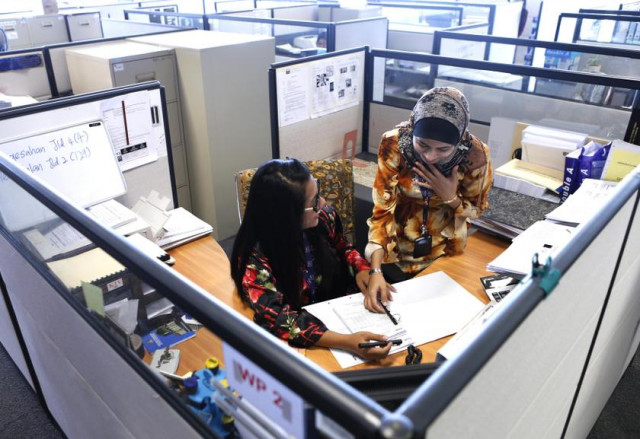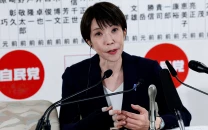The gender power gap
Everywhere, women are worse off than men — simply because they are women

Representational image. PHOTO: REUTERS
Everywhere, women are worse off than men — simply because they are women. The reality for women from minorities, older women, those with disabilities and women migrants and refugees is even worse.
While we have seen enormous progress on women’s rights over recent decades, from the abolition of discriminatory laws to increased numbers of girls in school, we now face a powerful pushback. Legal protections against rape and domestic abuse are being diluted in some countries while policies that penalize women, from austerity to coercive reproduction, are being introduced in others. Women’s sexual and reproductive rights are under threat from all sides.
This is because gender equality is fundamentally a question of power. Centuries of discrimination and deep-rooted patriarchy have created a gender power gap in our economies, political systems and corporations. The evidence is everywhere.
Women are still excluded from the top table, from governments to corporate boards to prestigious award ceremonies. Women leaders and public figures face harassment, threats and abuse online and off. The gender pay gap is just a symptom of the gender power gap.
Even the supposedly neutral data that informs decision-making is often based on a “default male”; men are seen as standard while women an exception.
Women and girls also contend with centuries of misogyny and the erasure of their achievements. They are ridiculed as hysterical or hormonal; routinely judged on their looks; subjected to endless myths and taboos about their natural bodily functions; and confronted by sexism, mansplaining and victim-blaming.
This affects us all, and is a barrier to solving many of the challenges we face.
Take inequality. Women earn 77 cents for every dollar earned by men. The latest WEF research says it will take 257 years to close this gap. Meanwhile women and girls do 12 billion hours of unpaid care work every day that does not figure in economic decision-making. If we are to achieve fair globalisation, we need to base our policies on statistics that take account of women’s true contributions.
Digital technology is another case in point. The lack of gender balance in universities, start-ups and Silicon Valleys is deeply worrying. These tech hubs are shaping the societies and economies of the future; we cannot allow them to entrench and exacerbate male dominance.
Or take the wars ravaging our world. There is a straight line between violence against women, civil oppression and conflict. How a society treats its female population is a significant indicator of how it will treat others. Even in peaceful societies, many women are in deadly danger in their own homes.
There is even a gender gap in our response to the climate crisis. Initiatives are marketed at women, while men are more likely to put their faith in untested technological fixes. And women economists and parliamentarians are more likely to support pro-environmental policies.
Finally, political representation is the clearest evidence of the gender power gap. Women are outnumbered by an average of 3:1 in parliaments worldwide, but their presence is strongly correlated with innovation and investment in health and education, with governments that are redefining economic success to include wellbeing and sustainability being led by women.
This is why one of my first priorities at the United Nations was to bring more women into our leadership. We have now achieved gender parity at the senior level, two years ahead of schedule, and have a roadmap for parity at all levels in the years to come.
Our world is in trouble, and gender equality is an essential part of the answer. Man-made problems have human-led solutions.
The 21st century must be the century of women’s equality in peace negotiations and trade talks; in boardrooms and classrooms; at the G20 and the UN.
It’s time to stop trying to change women, and to start changing the systems preventing them from achieving their potential.
Published in The Express Tribune, March 8th, 2020.
Like Opinion & Editorial on Facebook, follow @ETOpEd on Twitter to receive all updates on all our daily pieces.



















COMMENTS
Comments are moderated and generally will be posted if they are on-topic and not abusive.
For more information, please see our Comments FAQ